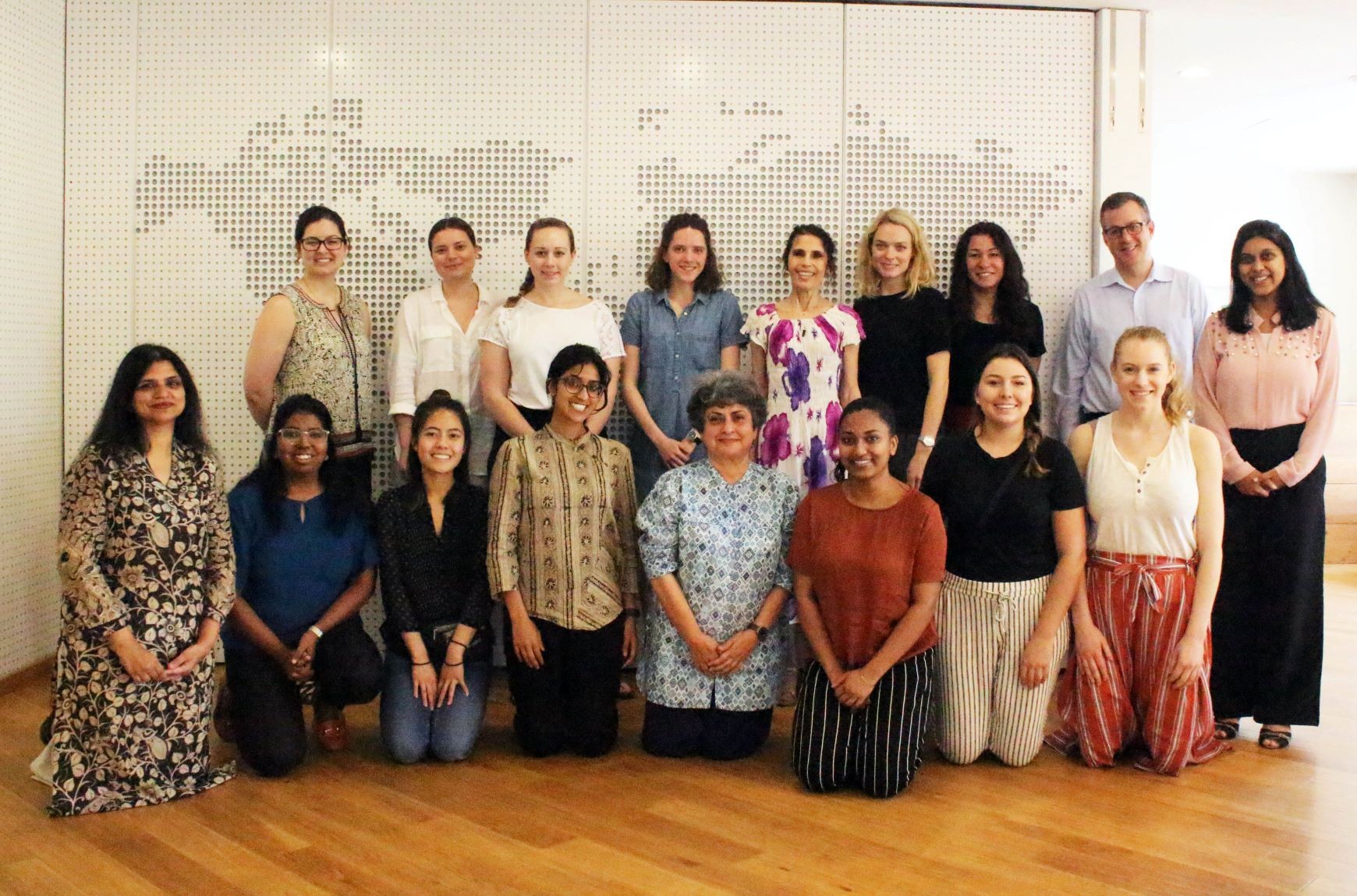Infectious Diseases and Caregiving

“Diseases in India can be tackled only with an equity plan,” remarked Dr. Nerges Mistry from the Foundation of Medical Research, an expert speaker invited for the orientation program organized by the Columbia Global Centers | Mumbai on April 8, 2019 for nursing students from the Columbia School of Nursing. The students were beginning a six-week global clinical practicum to care for patients with infectious diseases at the Bel-Air Hospital in Panchgani and St. Philomena’s Hospital in Bengaluru.
Dr. Mistry provided a comprehensive overview on the challenges in healthcare and disease control in India, emphasizing the double whammy of communicable (tuberculosis, neglected tropical diseases, viral fevers, dengue) and non-communicable diseases (cancers, mental health problems, diabetes and hypertension) that dominate the country. She explained how infectious diseases as a whole are affecting all age groups and their treatment is compounded with the threat of antimicrobial resistance. According to her, the most common systemic flaws in the implementation of public health programs include the inability of policymakers to understand and translate evidence, lack of surveillance systems, inadequate inclusion of nonmedical social efforts to strengthen care, and lack of data sharing.
Students also learned about a holistic, drug-resistant tuberculosis project in Mumbai run by Médecins Sans Frontières through a presentation by Dr. Ramanpreet Kaur. Tuberculosis is one of the top ten causes of death globally; India bears 27 percent of the world’s cases of tuberculosis and 24 percent of all multi-drug resistant tuberculosis cases worldwide with Mumbai bearing one of the highest burdens of cases reported. Dr. Kaur highlighted stigma and lack of awareness as major challenges to accessing treatment. She emphasized the need to promote patient-centric treatment support services as a model of care, which could enable patients to exercise their rights and fulfil their responsibilities with transparency, dignity and respect. She also focused on the need for individualizing the need for care and support, particularly focussing on the need for social support. Finally, she identified the role of nurses as a backbone to project implementation.
Nursing student Maher Benham said, “My overall experience was very positive and very inspiring. The model of health care practiced at Bel-Air Hospital is truly patient-centered and addresses the humanity of each patient with respect and compassion. Seeing their philosophy in action transformed both my thinking about nursing and how I want to practice in the future. I am not the same person, or the same nurse, I was before I went to India.”